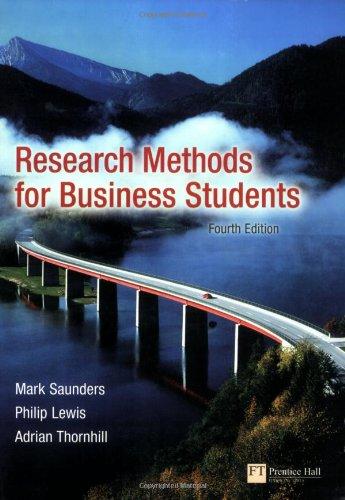Question
Throughout the semester and my time as a Walden doctoral student, I have come to understand the meaning of social change is multifaceted. On the
Throughout the semester and my time as a Walden doctoral student, I have come to understand the meaning of social change is multifaceted. On the one hand, social change is taking collectivist action to actively improve the lives of others. Social change is also working towards the betterment of society and attempting to solve key societal problems. While social change can begin with a passion for helping others, action research can be used as a catalyst for developing projects and programs to make a difference. Ravitch and Carl (2021) stated that all research is powerful, and great responsibility comes with that power. My education at Walden has provided me with the tools to be an agent of positive social change, how to conduct complex, ethical, and rigorous research, and ignited a passion in me to use research as a starting point to expand my area of influence. Major assignment two allowed me to explore social change as a social issue and as a research issue. Moreover, major assignment one allowed me to gain experience in framing my passions as an educator into a qualitative research study that would allow me to identify the causes of problems with ineffective reading habits. Identifying and sharing research pertaining to this would enable the development and implementation of appropriate academic supports for students who struggle with reading comprehension and literacy skills necessary to succeed in their college coursework.
As I near the project study phase, I would like to continue to explore reading and literacy at the community college level. With current policy changes in California resulting from AB 705 and the elimination of developmental reading courses, inadequate skills are a barrier to student success. This policy change implies that students can no longer enroll in college courses to learn the skills and strategies necessary to comprehend their college-level readings (California Legislative Information, n.d.). Therefore, I have identified a problem: many full-time, first-time (FTFT) community college students do not have the reading comprehension and literacy skills necessary to complete their college-level readings. My question is, how do we provide that support while remaining in compliance with the laws in California regarding basic skills?
My next steps are deciding how to best approach this problem from a research perspective and a social change aspect. A quantitative study would allow me to use data to determine if reading strategy courses are associated with student success when taken in the first year of community college. A qualitative study would allow me to explore the content area reading comprehension and literacy strategies college students use when approaching college-level reading tasks in their courses. I would prefer to start with a quantitative study as my project study for my doctorate to determine if teaching reading strategies is viable in improving college success and retention. After graduation, I would like to follow up with a qualitative study to identify which strategies are being used by students and which would be the most beneficial. From there, research could be done to determine the best mode of teaching students strategies, whether it be stand-alone courses, support courses, paired courses, or workshops.
Respond to this colleagues' posts and comment on their consideration for choosing to go forward with a qualitative study.
Step by Step Solution
There are 3 Steps involved in it
Step: 1

Get Instant Access to Expert-Tailored Solutions
See step-by-step solutions with expert insights and AI powered tools for academic success
Step: 2

Step: 3

Ace Your Homework with AI
Get the answers you need in no time with our AI-driven, step-by-step assistance
Get Started


